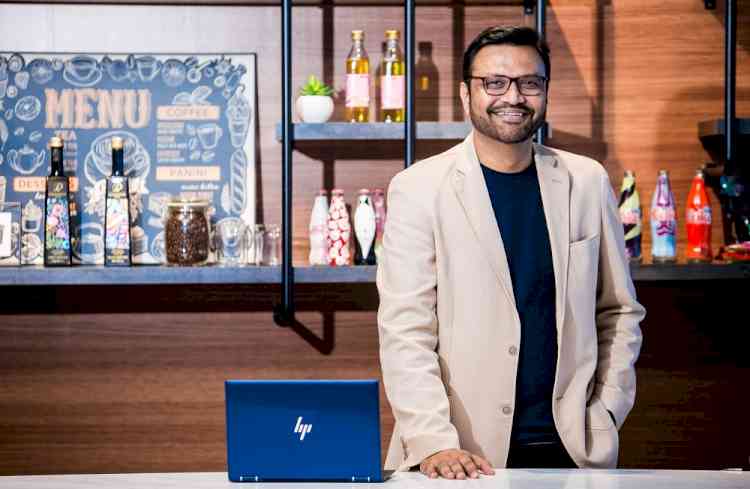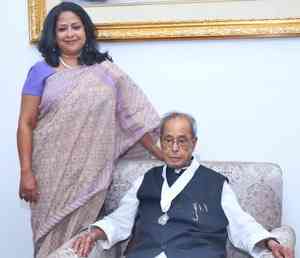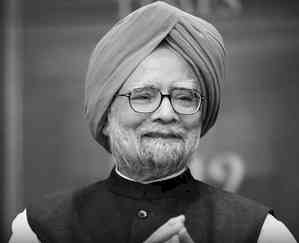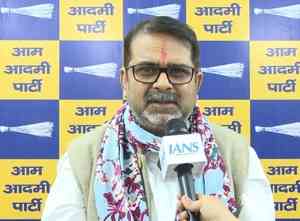Hybrid work is here to stay even if things turn normal: HP India Head (IANS Interview)
As countries reopen after navigating a long spell of the Covid-19 pandemic, the world will never be the same again in terms of people going back to offices -- even if things come back to normal -- and hybrid work is going to stay with us, says Ketan Patel, Managing Director, HP India market.

By Nishant Arora
New Delhi, Dec 27 (IANS) As countries reopen after navigating a long spell of the Covid-19 pandemic, the world will never be the same again in terms of people going back to offices -- even if things come back to normal -- and hybrid work is going to stay with us, says Ketan Patel, Managing Director, HP India market.
India has millions of flexible workers (and the pandemic has created millions more) who will now be working from home, or from anywhere going forward.
"The world will remain in the hybrid mode, irrespective of the new Omicron strain. I think one thing people have realised -- large customers, small customers or educators -- that there is a huge productivity opportunity from working from home or working from anywhere which they don't want to miss," Patel told IANS.
The global supply chain is currently facing disruption owing to the pandemic and several industries -- from automakers to smartphone manufacturers -- are bearing the brunt.
According to Patel, the supply chain threat will always loom in the new normal and "we have to be continuously checking how the situation is emerging and setting expectations with our customers."
"Since a lot of our customers need a lot of our devices for their business continuity plans, we are very mindful that without their devices, their business and their entire productivity can be at risk," Patel said.
"We are working very closely with our customers to continuously communicate to them, doing advanced planning with them and have a cushion in our supply chain so that their productivity doesn't get impacted," he elaborated.
Hybrid workplace is going to fuel growth categories like computing and home printing products.
According to Gartner, the worldwide PC shipments totalled 84.1 million units in the third quarter of 2021, an increase of 1 per cent from the third quarter of 2020.
As Covid-19 vaccines become more widely available, consumer and educational spending began to shift away from PCs to other priorities, slowing momentum in the market, said the market research firm.
The Indian PC market (inclusive of desktops, laptops, and workstations) also reported an all-time high shipment record of 4.5 million units in Q3, according to International Data Corporation (IDC).
HP maintained its lead in the overall PC category in India during the period, with over a million shipments in the domestic market.
According to Patel, the company is expanding its portfolio in manufacturing across multiple products in India, in order to make sure that "we play a meaningful role in building India's a global manufacturing hub".
The PC penetration in India among the millions of small and medium enterprises (SMEs) is still dismally low.
"A lot of SMEs are trying to join the digital bandwagon to be e-commerce ready, and want to be digitally connected to their customers. Some of the small mom-and-pop shops are also trying to be connected as a seller through a network of e-commerce platforms. Going forward, computing will become a centre-stage of everything that they do," Patel told IANS.
One of the challenges India always has is that it has a low PC penetration, in the range of 14-15 per cent, as compared to other economies where it is in the range of 40-50 per cent.
"This is that massive opportunity which will take us to a different level," Patel said.
"Gaming is another category that will see a boost in 2022. I think the gaming market in India has grown more than 100 per cent last year. PC gaming has helped people remain connected with their friends and entertain themselves. That is why gaming has become mainstream and has driven a lot of growth," Patel noted.
Some people buy gaming products for casual gaming but because of high-processing and high-graphics capabilities, they can also create casual videos.
"So if you are a YouTuber, you use that power of the machine. If you are a photographic enthusiast, you can use that power. If you want to stream content on OTT, the PC machine with high-processing power and graphics capability and great screen gives you that experience too," the HP India head elaborated.
(Nishant Arora can be reached at [email protected])


 IANS
IANS 













